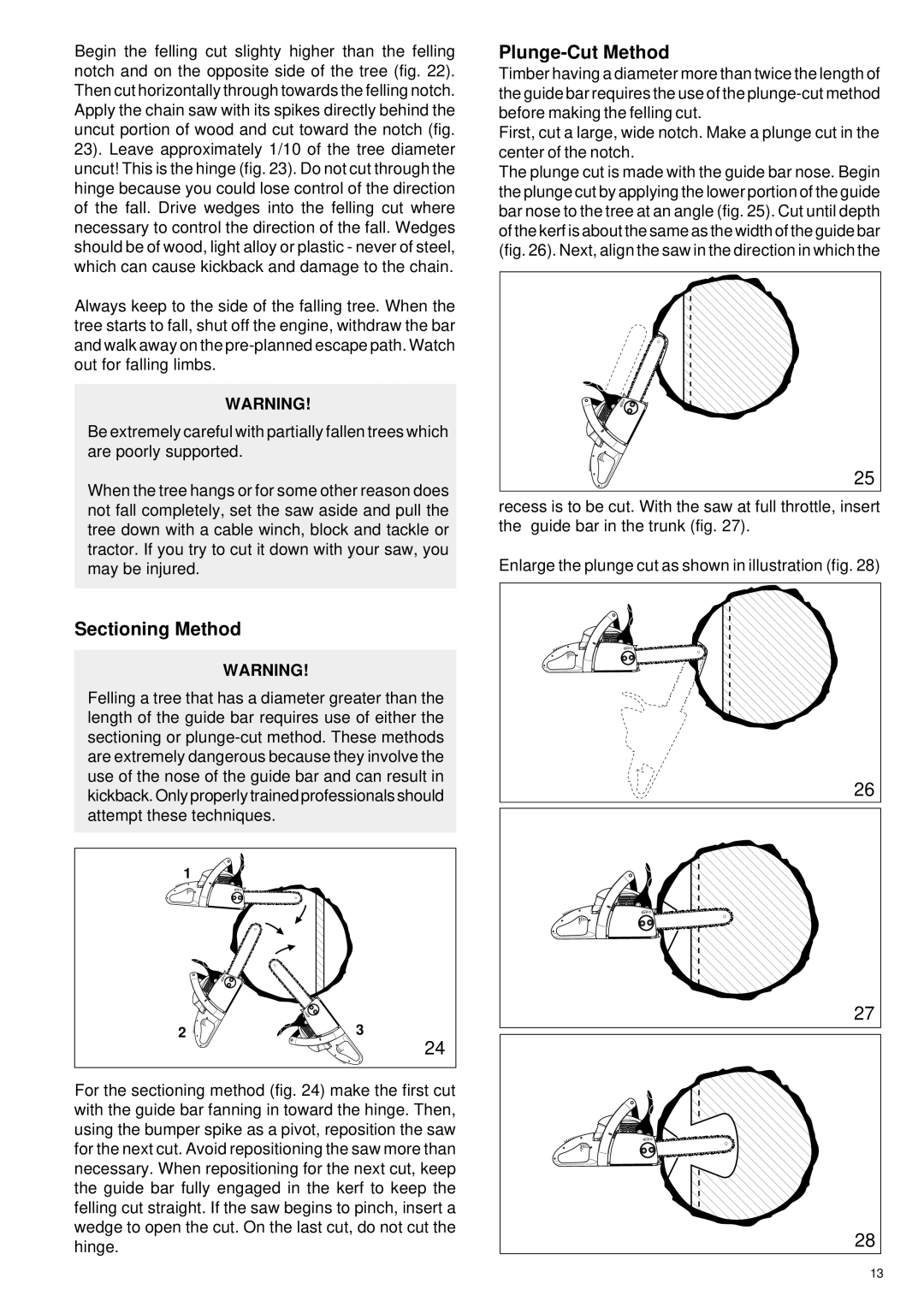
Begin the felling cut slighty higher than the felling notch and on the opposite side of the tree (fig. 22). Then cut horizontally through towards the felling notch. Apply the chain saw with its spikes directly behind the uncut portion of wood and cut toward the notch (fig. 23). Leave approximately 1/10 of the tree diameter uncut! This is the hinge (fig. 23). Do not cut through the hinge because you could lose control of the direction of the fall. Drive wedges into the felling cut where necessary to control the direction of the fall. Wedges should be of wood, light alloy or plastic - never of steel, which can cause kickback and damage to the chain.
Always keep to the side of the falling tree. When the tree starts to fall, shut off the engine, withdraw the bar and walk away on the
WARNING!
Be extremely careful with partially fallen trees which are poorly supported.
When the tree hangs or for some other reason does not fall completely, set the saw aside and pull the tree down with a cable winch, block and tackle or tractor. If you try to cut it down with your saw, you may be injured.
Plunge-Cut Method
Timber having a diameter more than twice the length of the guide bar requires the use of the
First, cut a large, wide notch. Make a plunge cut in the center of the notch.
The plunge cut is made with the guide bar nose. Begin the plunge cut by applying the lower portion of the guide bar nose to the tree at an angle (fig. 25). Cut until depth of the kerf is about the same as the width of the guide bar (fig. 26). Next, align the saw in the direction in which the
25
recess is to be cut. With the saw at full throttle, insert the guide bar in the trunk (fig. 27).
Enlarge the plunge cut as shown in illustration (fig. 28)
Sectioning Method
WARNING!
Felling a tree that has a diameter greater than the length of the guide bar requires use of either the sectioning or
1
2 | 3 |
24
For the sectioning method (fig. 24) make the first cut with the guide bar fanning in toward the hinge. Then, using the bumper spike as a pivot, reposition the saw for the next cut. Avoid repositioning the saw more than necessary. When repositioning for the next cut, keep the guide bar fully engaged in the kerf to keep the felling cut straight. If the saw begins to pinch, insert a wedge to open the cut. On the last cut, do not cut the hinge.
26
27
28
13
